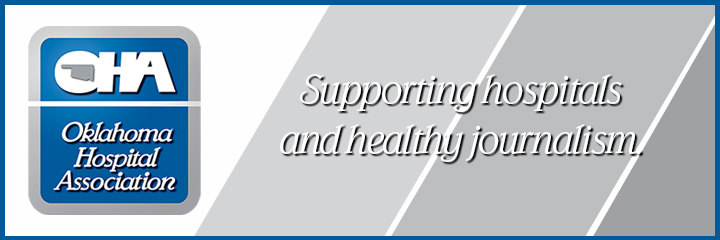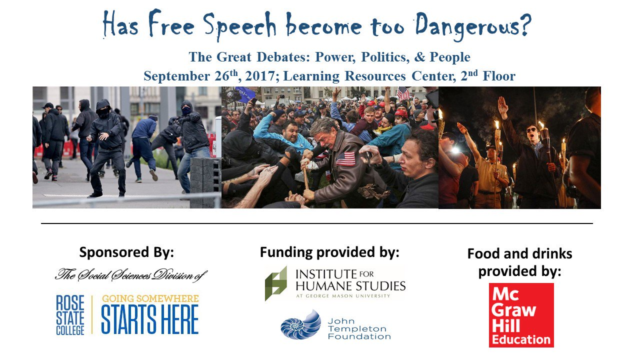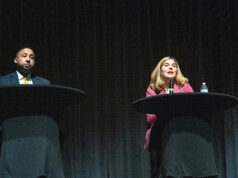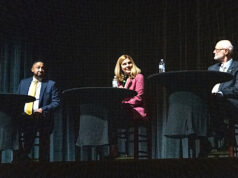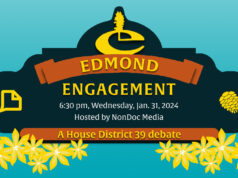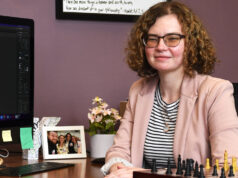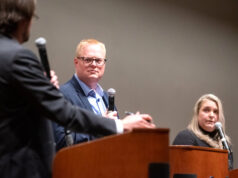Has free speech become a danger to, rather than a cornerstone of, democratic society? Should science dictate public policy? What can be done to make the Electoral College an institution worthy of existing in a democratic republic?
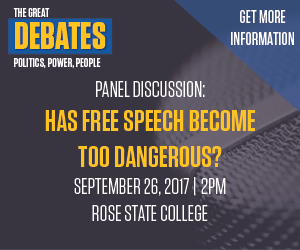
These are questions Americans are asking across our country. As we debate these questions, passions and rhetoric flare on all sides. Many would like to look the other way and pretend these divisions don’t exist. Others close their ears and minds to those with differences of opinions. Neither of those approaches will solve the problems we’re facing, nor will they help us find common ground.
That’s why Rose State College’s Social Sciences Division has taken the initiative to address these issues in a manner that fosters civil discourse, understanding and a shared commitment to the common good. Starting Tuesday and continuing through November, our Great Debates: Power, Politics, & People series will host three panel forums featuring a variety of experts on a range of topics to discuss these important issues. These events allow our students, faculty and community members to hear from and engage with academics, civic leaders, journalists and political practitioners from across the central Oklahoma region. (View video from February’s Great Debates panel discussion below.)
Free speech at core of Tuesday’s discussion
Once again, we find ourselves asking whether we can tolerate free speech that is controversial – sometimes offensive – and divisive. Whether it’s white nationalists marching on a college campus to protest the removal of Confederate war statues, campus micro-aggression policies so restrictive that even the most benign statements could find a student facing disciplinary action, or a community college preventing a student from passing out copies of the U.S. Constitution (in Spanish no less) without a permit and in only a designated space, many clearly consider free speech dangerous.
But can democratic society truly survive if we begin squelching the speech rights of others? And who gets to decide what speech is permitted and what speech is banned?
These and other questions will be discussed by professors James Davenport and Darcy Delaney of Rose State College; Arnold Hamilton of the Oklahoma Observer; Brady Henderson of the American Civil Liberties Union of Oklahoma; and professor Elizabeth Overman from the University of Central Oklahoma.
Future panel to discuss role of science in politics Oct. 24
In addition, a great deal of debate surrounds the role of science in creating public policy. Should science be the last word in public policy issues ranging from climate change, food and drug policy, education, and economic growth? Or are there other considerations that must be taken into account when making such policies? Does the scientific method itself undermine the notion of science “being the last word”? Are there other forms of knowledge that are equally as valid as the scientific method?
Rose State professors Davenport, Andy Slagle, Guy Crain and Amy Hurst will explore these and other questions on Oct. 24.
Electoral College focus of final discussion Nov. 14
In 2016, we again had a presidential election in which the winner of the popular vote was not the winner of the Electoral College vote. Not surprisingly, calls for eliminating the Electoral College again rang out across the country, but does the 2016 presidential election really constitute one more piece of evidence against an antiquated and anti-democratic institution? Or is it actually evidence of the need for such an institution that can function as the Framer’s intended? Is there value in having an intermediary body of individuals selecting the chief executive of the United States? Does the Electoral College require presidential campaigns to appeal to a broader swath of the American public than a mere popular vote would? Can the Electoral College be both more representative of the people and more deliberative as an institution?
Rose State professors Davenport, Alan Cook and Forrest Paige will join University of Central Oklahoma professor Deb Ferrell-Lynn to tackle these questions on Nov. 14.
The details for those interested
All three of these discussions will be free of charge and open to the public. They will all be held in the second-floor special events area of the Rose State College Learning Resources Center. Each panel will begin at 2 p.m. and will last about 90 minutes.
This project has received funding from the John Templeton Foundation through a grant administered by the Institute for Humane Studies. For more information on the Great Debates: Power, Politics, & People program, contact program coordinator James Davenport.
